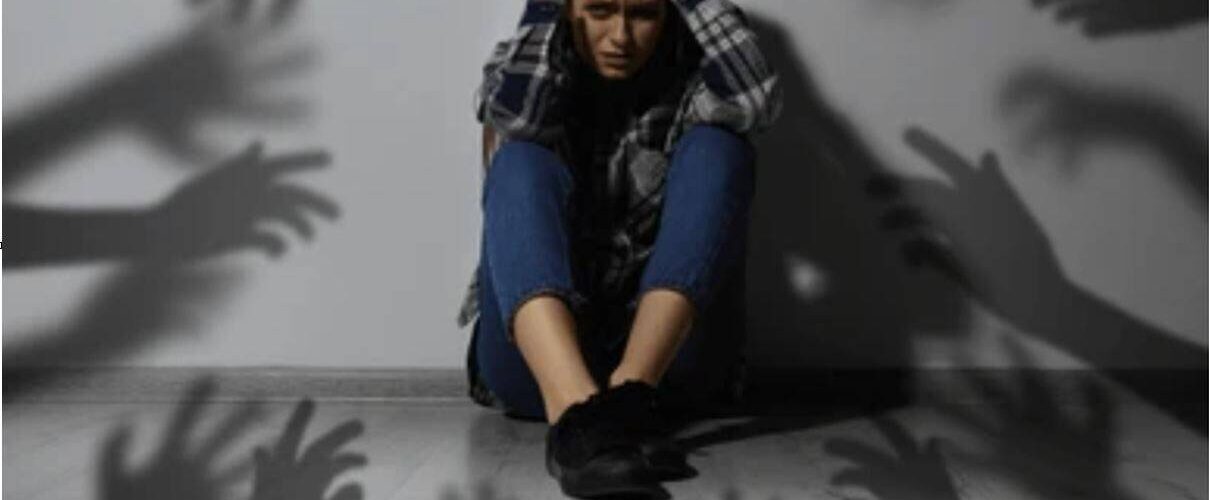Psychotic episode is a temporary break with reality and can be caused by many causes.
Psychotic episode is an abrupt event in which a person loses contact with reality. During this episode, the person may experience a series of mental disturbances that distort their perception of the world. Although it is temporary, it can be a frightening and confusing experience for both the person experiencing it and those close to them.
For this reason, people who suffer from psychosis often present changes in their usual behavior, they may laugh at inappropriate times or get angry for no reason.
In addition, in some cases people become very active and may be very lethargic and do nothing all day. Likewise, their behavior is extravagant and disorganized, for this reason, it can be quickly differentiated that they are not acting coherently.
A brief psychotic episode consists of the appearance of delusional ideas, hallucinations or other psychotic symptoms that last at least 1 day but less than 1 month. On the other hand, the part of the brain that is affected by psychosis are the prefrontal and temporal areas, this can occur at any age.
In reality, these disorders can have a genetic cause or can result from external causes, such as: substance abuse or depression.
The person with the disorder is usually not aware of his behavior. Treatment includes medications and conversational therapy. Psychosis is not a contagious disease nor is it transmitted by proximity to a person who has this disorder.
The types of psychotic disorders that may occur are:
- Brief psychotic.
- Substance- or medication-induced psychotic.
- Schizophrenia.
- Delusional.
- schizoaffetive.
- Shared psychotic.
- Psychotic due to another medical condition.
Symptoms that may occur with psychotic disorder include:
- Delusions of persecution.
- Hallucinations, nightmares, or memory loss.
- Thought disorders.
- Catatonic symptoms (rigidity, mutism, stupor)
- Disorganized speech. Speech impairment, incoherent speech, rapid, frenetic speech, or excessive verbosity.
- Behavior changes. Nervousness, anxiety, apathy, general discontent, anger, excitement, limited range of emotions, feeling disconnected from oneself or alone.
- Bizarre and disorganized behavior. Disorganized behavior, agitation, aggression, social withdrawal, self-mutilation, lack of self-control, hostility, repetitive movements, incoherent repetition of words or actions.
If psychosis is not treated in time, there can be potential complications, as well as preventing people from functioning normally and taking care of themselves. For this reason, it is important to follow these recommendations:
Recommendations if you suffer from this disorder:
- Follow regular treatment: If you have been diagnosed with a mental illness, it is important to follow your treatment as directed. This can help reduce your risk of a psychotic outbreak.
- Ask for help early.
- Talk to trusted people about your concerns.
- Support from family and friends.
- Understand and acquire strategies to control and adapt to psychosis.
Recommendations to prevent a psychotic outbreak:
If you are at higher risk of experiencing a psychotic outbreak, there are some things you can do to reduce your risk, including:
- Manage stress: Stress can trigger a psychotic outbreak, so it is important to find healthy ways to manage stress. This may include exercise, relaxation techniques, or therapy.
- Avoid drugs: Substance abuse can worsen the symptoms of mental illness and increase the risk of a psychotic break.
- Get enough sleep: Lack of sleep can trigger or worsen the symptoms of mental illness. Most adults need about 7-8 hours of sleep per night.
Ultimately, people experiencing psychotic episodes exhibit bold behaviors, screaming, crying, and threatening behavior that become dangerous to those around them and to themselves.
If you or someone you know is experiencing a psychotic episode, it is important to seek help immediately. You can call a mental health hotline or go to a hospital emergency room.
They should also be medicated with antipsychotics and anti-impulsives for transportation.









